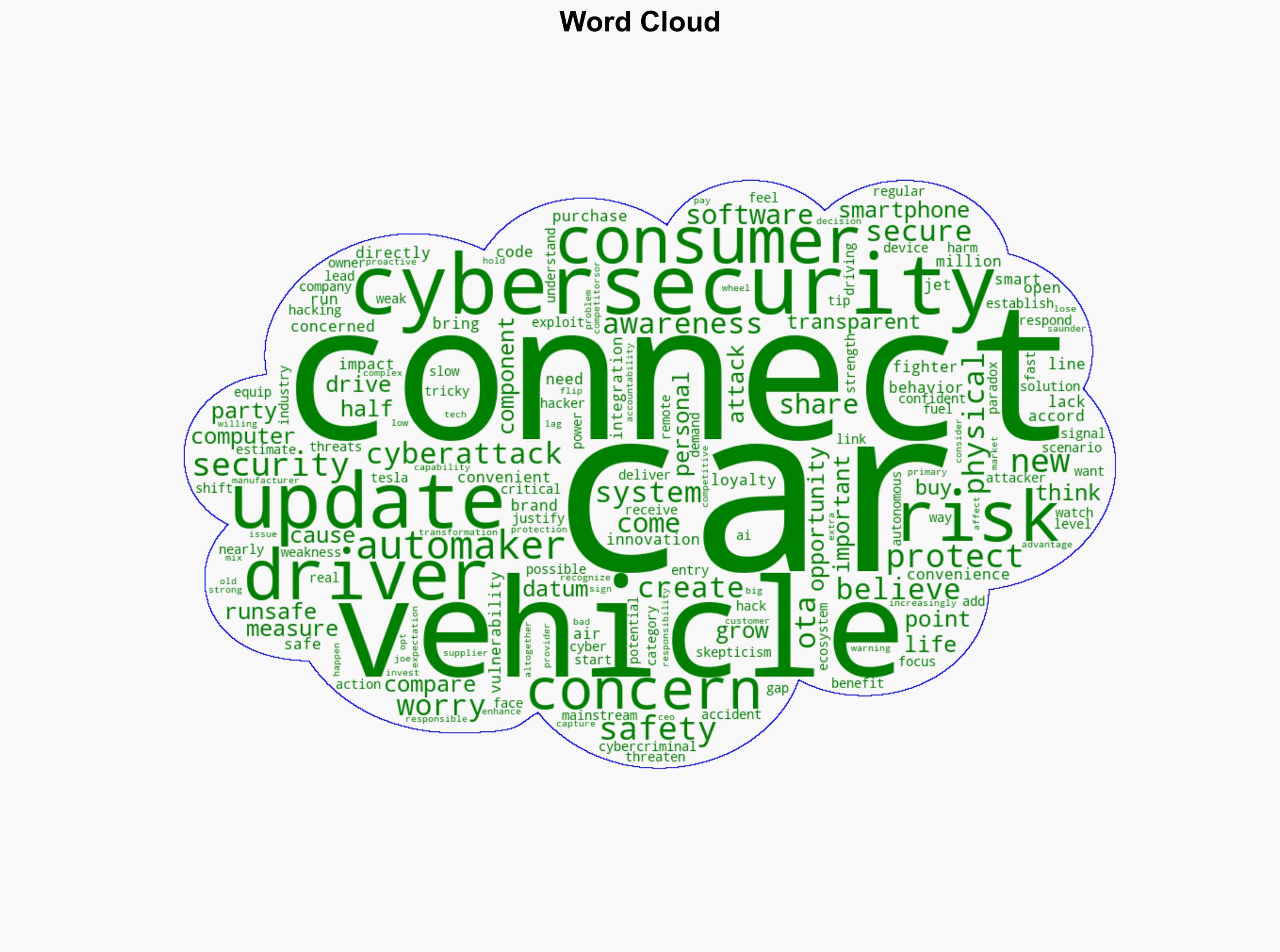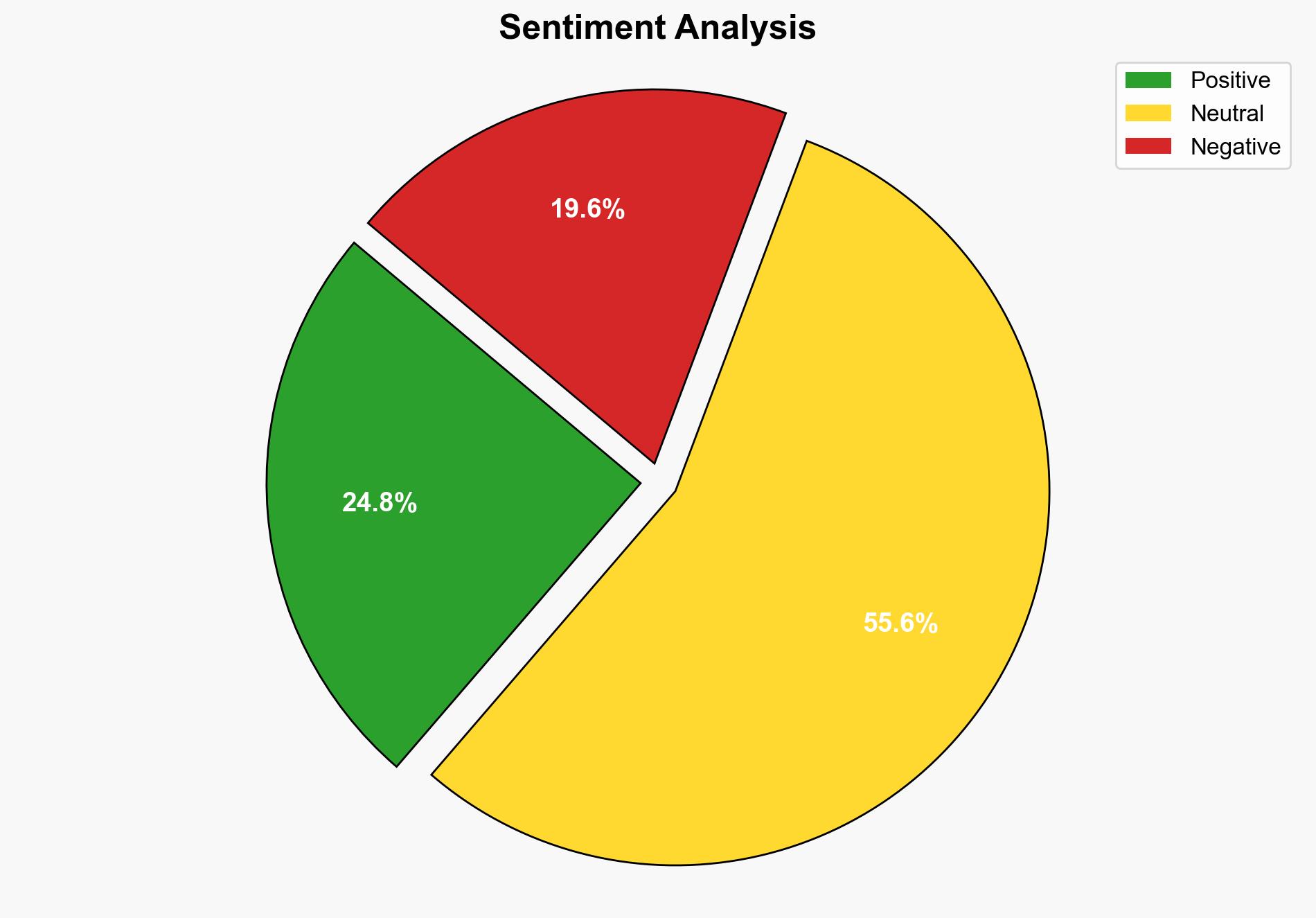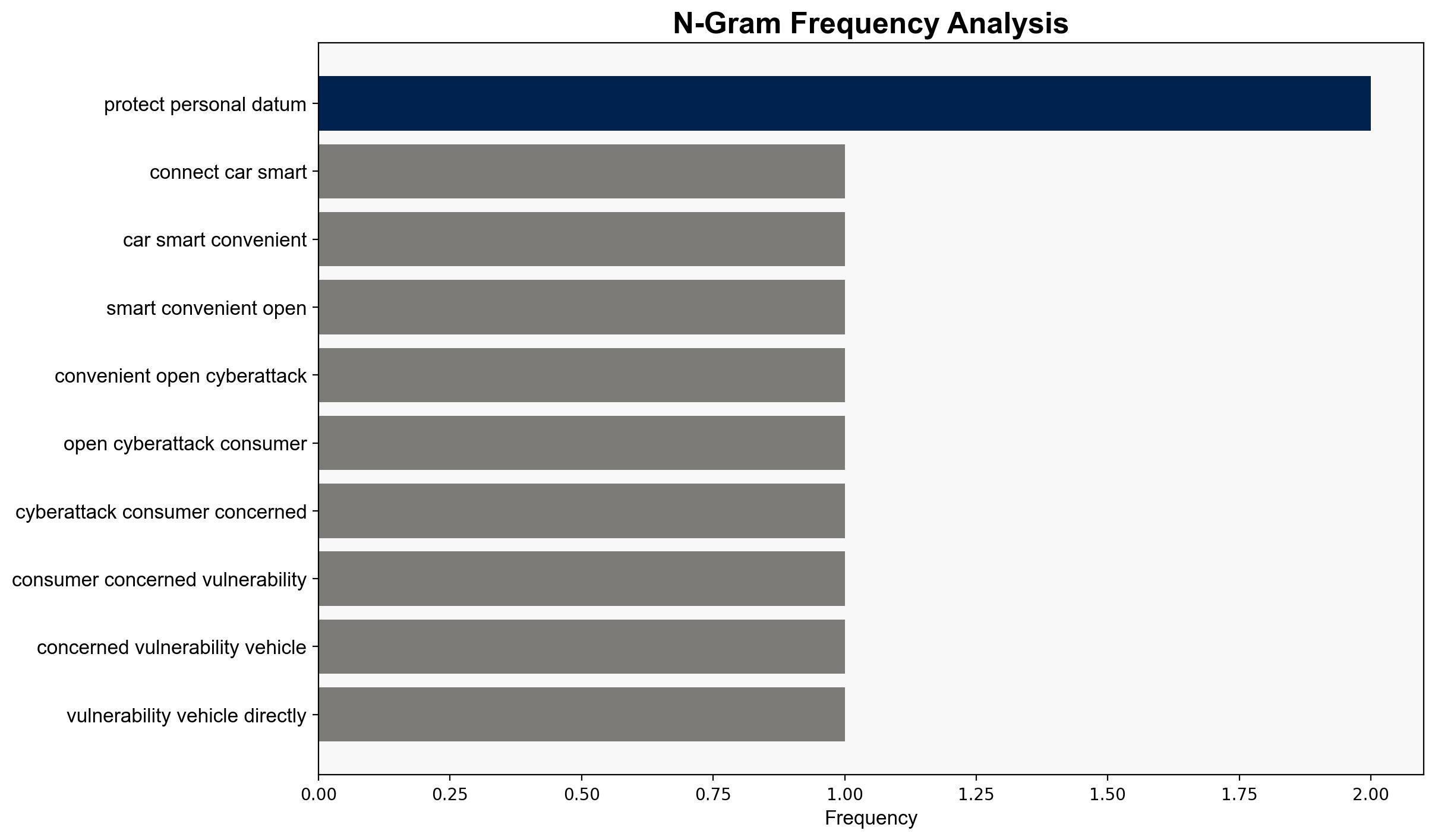Connected cars are smart convenient and open to cyberattacks – Help Net Security
Published on: 2025-09-05
Intelligence Report: Connected cars are smart convenient and open to cyberattacks – Help Net Security
1. BLUF (Bottom Line Up Front)
The strategic judgment is that the cybersecurity vulnerabilities in connected cars pose a significant risk to consumer safety and brand loyalty. The hypothesis that automakers’ slow response to cybersecurity threats will lead to increased consumer distrust is better supported. Confidence level: Moderate. Recommended action: Automakers should prioritize transparent and proactive cybersecurity measures to mitigate risks and maintain consumer trust.
2. Competing Hypotheses
1. **Hypothesis A**: Automakers will effectively address cybersecurity vulnerabilities in connected cars, leading to enhanced consumer trust and market growth.
2. **Hypothesis B**: Automakers’ slow response to cybersecurity threats will result in increased consumer distrust and potential market decline.
Using the Analysis of Competing Hypotheses (ACH) 2.0, Hypothesis B is more supported due to the current consumer concerns and the perception of inadequate industry response. The evidence suggests a growing awareness of cybersecurity risks among consumers, which is not being met with sufficient action by automakers.
3. Key Assumptions and Red Flags
– **Assumptions**:
– Consumers will prioritize cybersecurity in their purchasing decisions.
– Automakers have the capability to implement effective cybersecurity measures.
– **Red Flags**:
– Lack of comprehensive data on automakers’ current cybersecurity initiatives.
– Potential underestimation of consumer willingness to pay for enhanced security.
– **Blind Spots**:
– The role of third-party components in cybersecurity vulnerabilities.
– The impact of regulatory changes on automaker actions.
4. Implications and Strategic Risks
The increasing cybersecurity threats to connected cars could lead to significant economic impacts if consumer trust erodes. A potential escalation scenario includes a high-profile cyberattack causing physical harm, leading to regulatory scrutiny and financial penalties for automakers. The psychological impact on consumers could shift market dynamics, favoring companies with robust cybersecurity measures.
5. Recommendations and Outlook
- Automakers should invest in developing a transparent and proactive cybersecurity strategy, including regular updates and consumer education.
- Engage in partnerships with cybersecurity firms to enhance protection measures.
- Scenario Projections:
- Best Case: Automakers lead in cybersecurity, gaining competitive advantage and consumer trust.
- Worst Case: A major cyberattack leads to loss of life, severe brand damage, and regulatory backlash.
- Most Likely: Gradual improvement in cybersecurity measures, with ongoing consumer skepticism.
6. Key Individuals and Entities
– Joe Saunders, CEO of RunSafe Security, emphasizes the need for proactive security measures.
– Tesla, noted for leading in over-the-air updates, is a key player in setting industry standards.
7. Thematic Tags
national security threats, cybersecurity, consumer behavior, automotive industry




